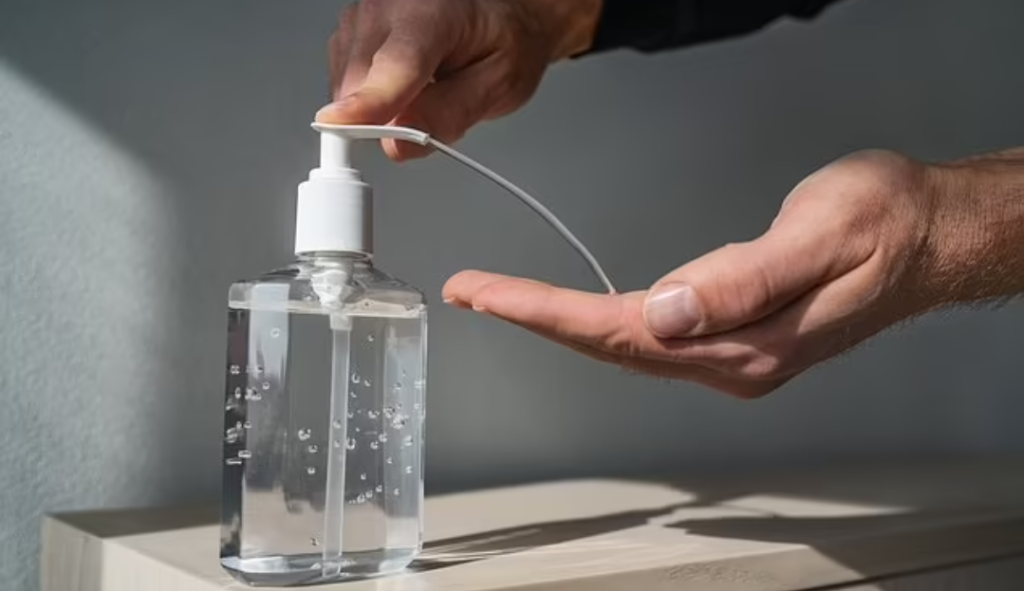
A 26-year-old alcoholic was so desperate to get his fix that he stole multiple hand sanitizer bottles so he could get drunk off of the alcohol they contained.
The case, published in the American Journal of Case Reports, reveals the unnamed patient, from France, visited his local emergency room complaining of severe abdominal pain.
Despite receiving pain medications, the patient continued to claim his pain had not subsided and grew agitated.
When doctors could not find anything wrong with him, the man’s roommate informed a nurse that the patient had been taking hand sanitizer bottles, hiding them in his bag and drinking them throughout his stay.
Upon searching, Doctors found several bottles of sanitizer in his bag, of which about 1.5 were consumed.
The man admitted to faking his pain to get access to the sanitizer because he was going through withdrawals due to addiction.
When the patient first arrived in the ER, doctors wrote he was irritated and ‘sometimes verbally aggressive.’
They noted that his abdominal exam and vitals were normal, though he had ‘general poor hygiene’ and a slightly elevated heart rate.
He was given several IV medications, including morphine for pain, though he remained agitated. When the patient continued to complain of pain, additional doctors sent him for a scan of his abdomen, which did not reveal any potential cause for his pain, but rather showed he had a fatty liver, which is often a sign of alcohol use disorder.
His blood tests showed slightly elevated liver enzymes, a sign of liver damage or inflammation.
Sanitizers contain about 80 percent pure alcohol. A can of beer is just five percent.
Doctors who treated the patient warned of an increase in such incidents, as the Covid pandemic made hand sanitizer more widely available, particularly in hospitals.
‘Hand sanitisers are in no doubt essential tools to fight infection, protecting both the user and others,’ the physicians wrote.‘It is a major challenge to ensure the safety of alcoholic patients inside the ED while maintaining a good hand hygiene policy.’
Doctors gave the patient fluids and infusions of vitamins B1, B3, and B6 to reduce the toxicity from the alcohol and hydrate him. He was admitted to the hospital under observation for 24 hours.
When he was discharged, he was reportedly referred to addiction specialists.



